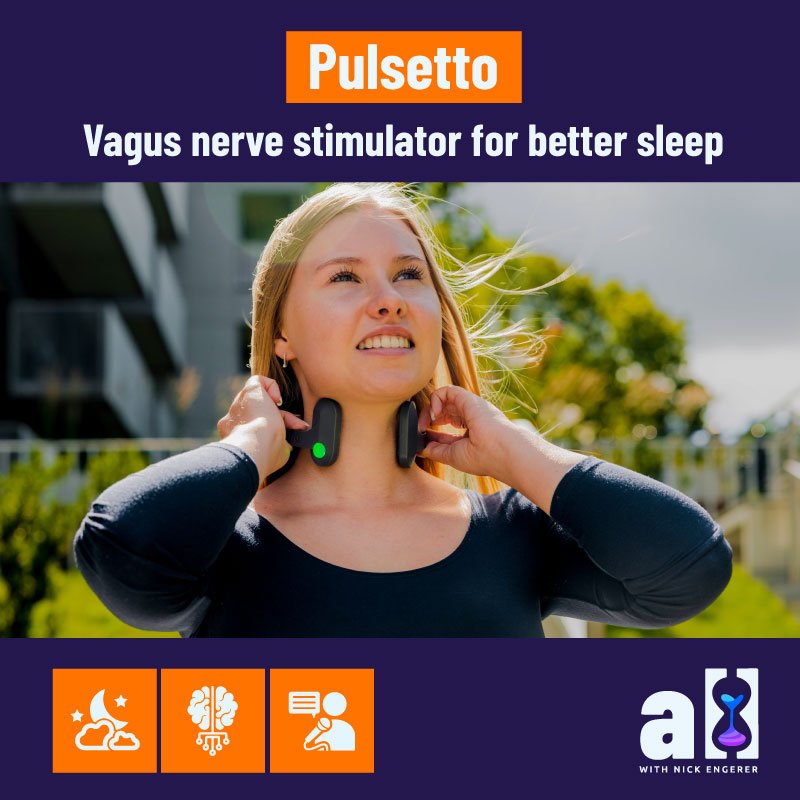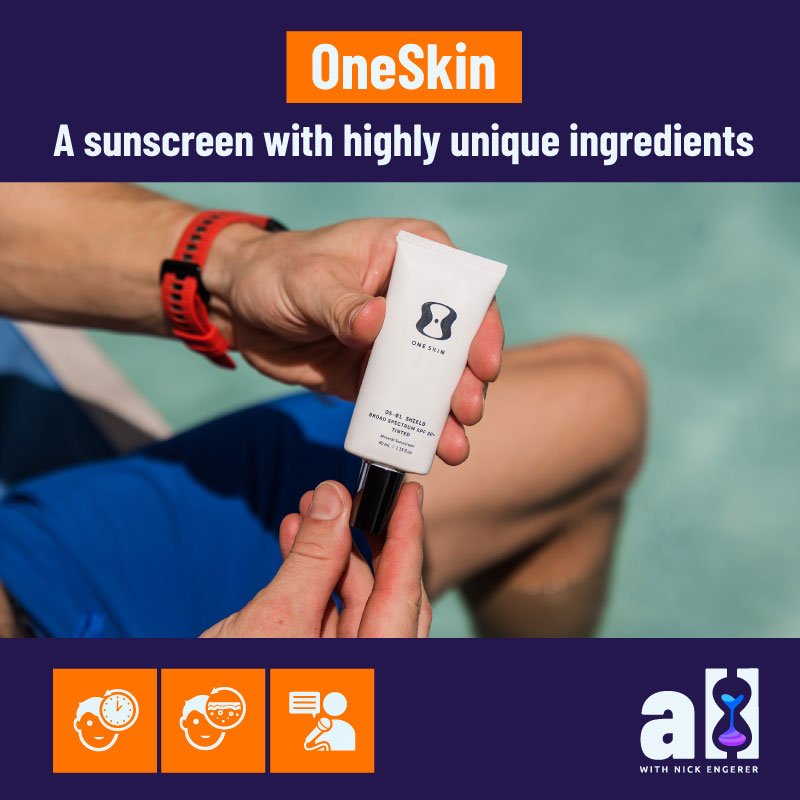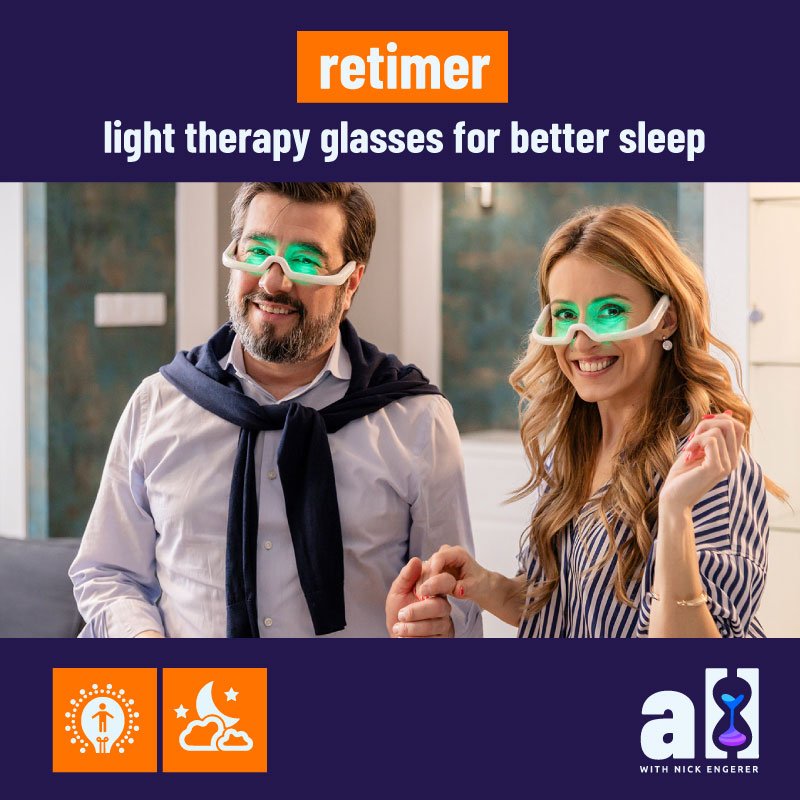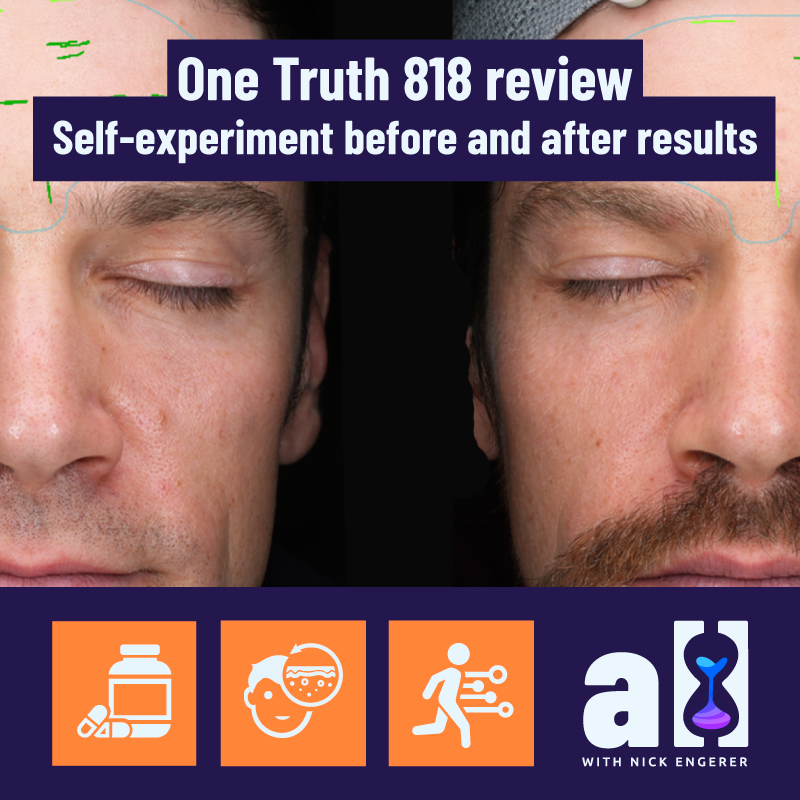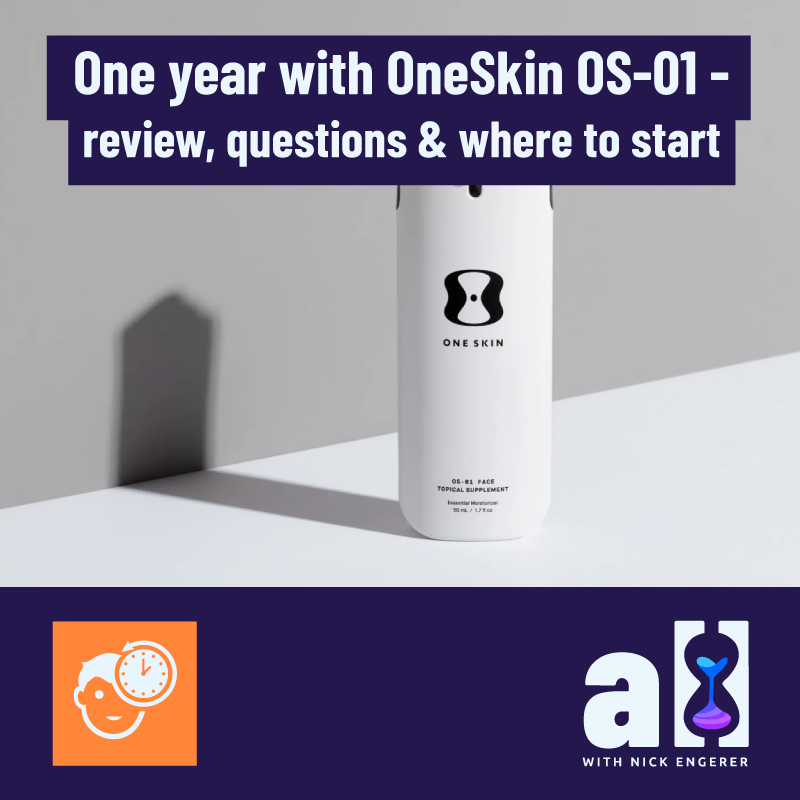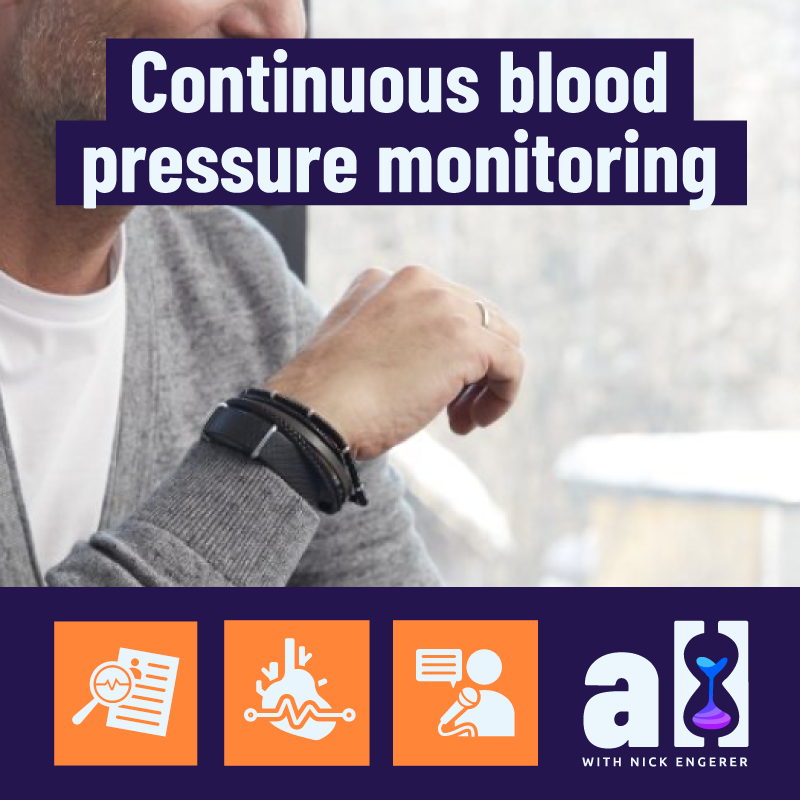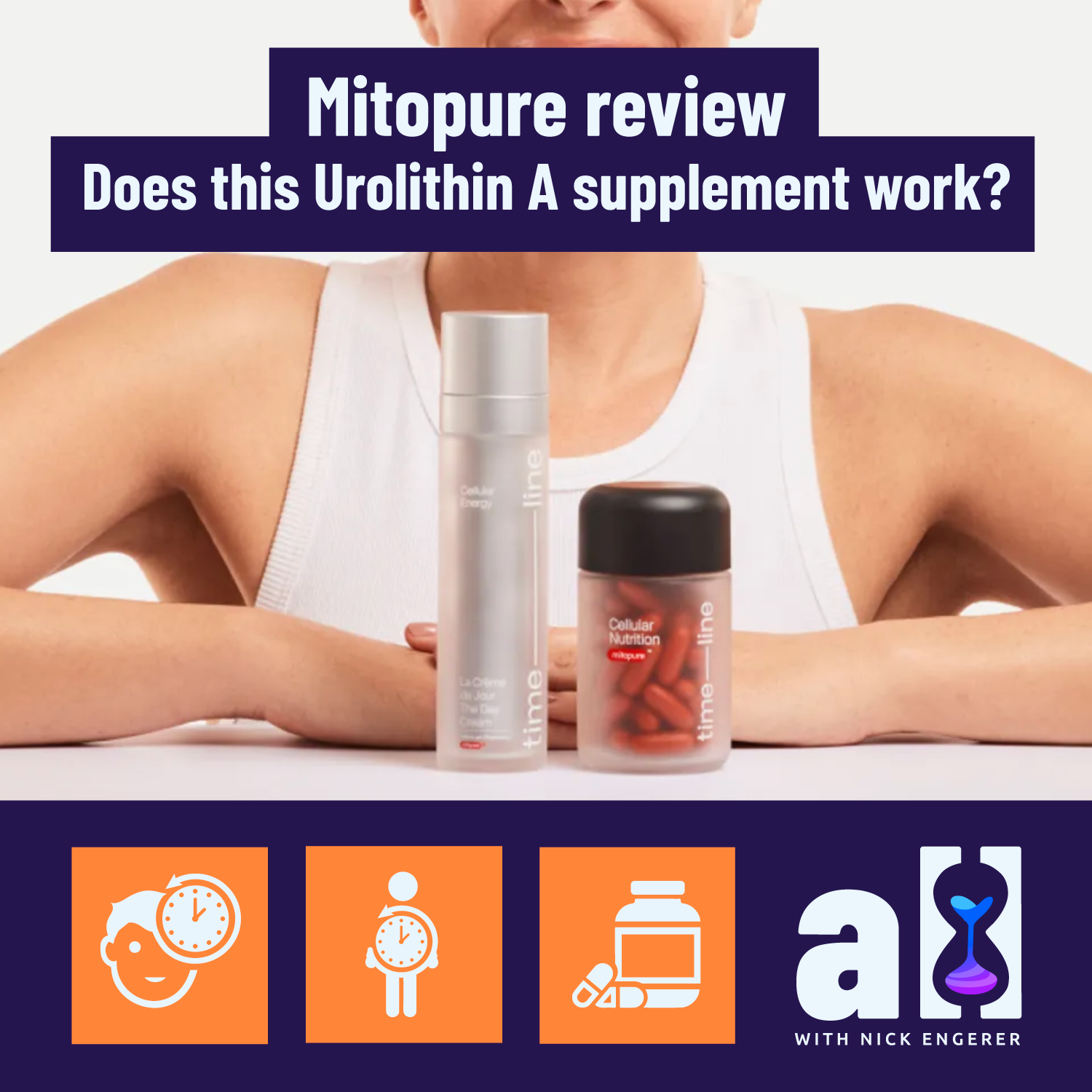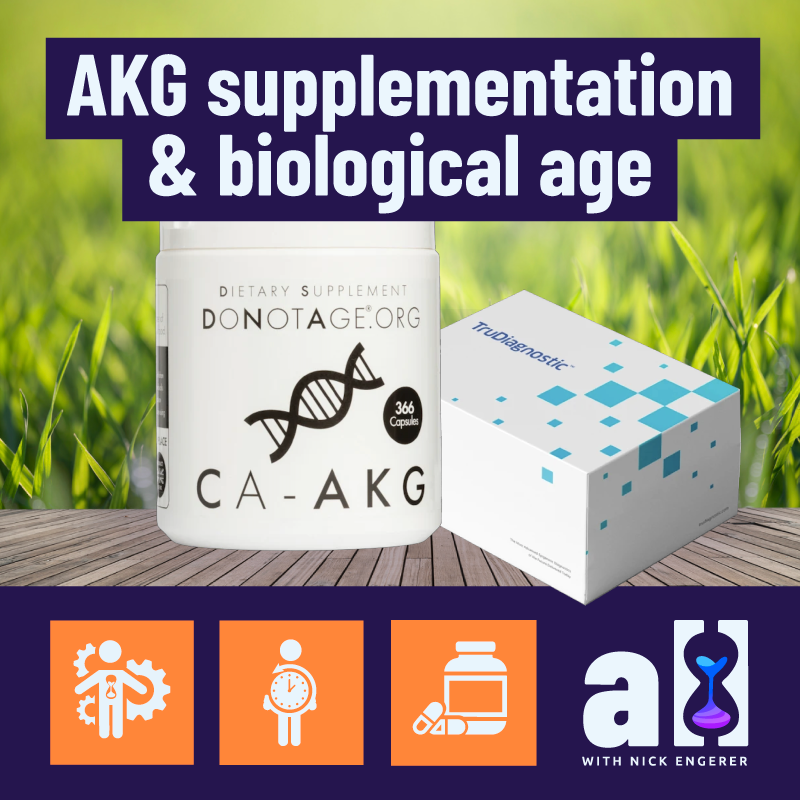What's My Age Again? Quantifying Biological Age with Three Free Online Tools
“How old are you?”
It’s a common question, and one that we often use in early conversation with acquaintances of all sorts. I’ve noticed just how common a query it is, because I’ve turned it into a fun guessing game, where I reply - “Well, how old do you think I am?”. People will often take a few moments to look at my face, and spurt out their guess without much hesitation. I’ve been casually keeping track of the responses, and the median age is currently 27 (range 24 - 30, 15 responses) - not bad for a 34 year old.
This fun little guessing game starts to beg a deeper, biological question. The difference between how old we look (we might call this one’s aesthetic age) versus our actual chronological age, varies from person to person. Looking at my classmates from high school or college over the years has been quite remarkable in this regard - many of my male classmates are now balding or have grey hair, others seem to have many wrinkles or sagging facial features already, many are overweight or obese - but a select few are trim, fit, glowing and youthful in appearance. So onto that biological question - are there measurable differences between people of the same chronological age that may shed some light on the seemingly different rates of aging I observe across my peers?
For a great, layperson explanation of the epigenetic ageing process, and what to do about it - Grab yourself a copy of “Lifespan” by Dr. David Sinclair
Well, fairly recently, the answer to this question has become a very clear yes. Enter the concept of biological age - where measuring representative variables in human biology have yielded remarkably accurate answers to this tricky question. There are several methods of approach, but by far the most widely discussed and accepted in the scientists exploring this topic are methylation clocks, which track changes in methyl groups in the epigenome. The epigenome is the system that controls how our genome is expressed, and this is known to change as we age. Later this year, I have plans to test and review several different biological age tests, including methylation clocks and other tools for tracking the epigenome and telomere length.
Given this emerging field of science, and new technologies that are following it, I have spent much of my recent longevity research efforts exploring the tools that are available to biohackers and wellness enthusiasts like myself for quantifying biological age. Today, I’ll share three different online tools that you can leverage, and share my results with you.
Biological Age Tool #1 - Phenotypic Age
[EDIT: Alternative direct download for spreadsheet hosted at the above link]
“Phenotypic Age” was first discussed in two separate studies, which you can find here (study 1 and study 2 -< note that Steve Horvath is one of the authors, who has pioneered the methylation clock work mentioned above). Phenotypic Age is calculated based on 9 biomarkers and measured chronological age using a cohort of 11,432 adults (a range of 20-84 years old). I was first introduced to this tool by Dr. Michael Lustgarten, who also blogs on longevity related topics, and was recently able to test out this tool for myself, thanks to the 15 vials of blood I gave at NextHealth.
Using the results from my Total Baseline test, and the excel spreadsheet located here (EDIT: some readers have reported the spreadsheet link is not working, so here is an alternative direct download) , I was able to enter the following information to reveal my phenotypic age. This includes information about the shape and size of my red and white blood cells, inflammation (C-reactive protein), albumin (protein in blood plasma) and creatinine (a byproduct of muscles and measure of kidney performance).
My biological age: 22 years old. That’s 12 years younger than my chronological age of 34! Hey - I must be doing something right :)
Biological Age Tool #2 - AgingAI
Another group of researchers who have pioneered biological age tools are the team at Insilico Medicine, developers of the ‘AgingAI’ tool. In fact, I considered Alex Zhavoronkov (CTO of Insilico) one of the world’s leaders in advocacy for longevity technology research, and if you are interested in this space, he is someone you should certainly follow.
AgingAI uses an artificial intelligence approach to biological age estimation, which is significantly more complex and technical than the linear model used in the phenotypic age tool. This approach employs deep neural networks and was trained on more than 60k data points (read more about the details here). In my view, this tool is inherently more subjective in that due to the machine learning approach employed, it will be biased toward chronological age more strongly than the phenotypic age model (simply put - the neural networks are trained against chronological age as ‘the answer’).
Using the results from my NextHealth Total Baseline I was able to complete both the AgingAI 2.0 and AgingAI 3.0 Tests. For those of you interested in replicating this with your own Total Baseline test, here are a few tips:
be sure to select “US” for the sample metric at the top
you won’t have a value for “Lactate dehydrogenase”, so I recommend using the median value of the reference range
“Basophils” is “Basos %”, “Eosinophils” is “Eos %”, and “Lymphocytes” is “Lymphs %”
in your Total Baseline report
And my results? AgingAI 2.0 guesses I am 30 years old. AgingAI 3.0 guesses 32 years old. Pretty close on both counts! And I suppose it is good news it knows I am a male (LOL).
 |
Biological Age Tool #3 - RealAge by ShareCare
Not everyone will have the blood test results on hand to use both of the above tools (but you can likely get them if you find the right medical doctor! Also, read-on below, as it appears you can order these online via “Walk-in Labs”). So I wanted to make sure I included an age test that did not require a blood test. This one is arguably not truly a biological age tool, but I’ll place it in that category based on the amount of biological data it ingests through its questionnaire style approach (it does collect cholesterol numbers for example). Co-created by “Dr. Oz” and Mike Roizen, this tool boasts that is has been completed more than 43M times.
An example question from the RealAge survey tool
I appreciated this test for its accessibility and its candour. What I mean by the latter point is that it asks many questions that clearly gauge youthfulness through emotional and psychological data points (really digging into whether or not you still have that quintessential ‘zest’ for life or not!). It also provides a wide array of follow-up tools that directly target your RealAge score, and can help you improve it, including a ‘dashboard’ tool that will let you track your behaviours and give you tailored advice (and I am sure it will use your data to make money somehow!).
This test reported a ‘Real Age’ (biological age) of 28 years old.
Should you complete a Biological Age test?
If you’re interested in maximising your longevity, it’s important to establish a baseline. This means, to establish where your overall health and wellness are at NOW, so that you can make changes to your diet, lifestyle, supplements and other input variables, and then re-test to determine how you’re faring with your own longevity strategy.
In my view, biological age tests are an ideal choice of baseline testing, as they are designed to comprise the overall impact of many different factors and are specifically dedicated to measuring aging. However, there is a rapidly growing list of options for testing, including checking your telomere length (of white blood cells), DNA methylation clocks (e.g. DNAge), and more broad spectrum epigenetic tests (check out Chronomics for example). So selecting which test to use comes down to a few key parameters, in my view:
Representativeness of the test to your overall health & wellbeing (Does the age test capture the most representative biomarkers of aging?)
Affordability (Are you able to routinely repeat the measurement based upon its cost?)
Accessibility (Do you need a doctor to work with you to get the test? Is it available in your country/region? Can you order it online?)
As a part of my commitment to the purpose of this blog (supporting you in generating your own longevity strategy), I am preparing a review of several of the biological age tests available on the market, for publication on this blog later this year. By working with the providers of these tests, I’ll share my results with you, and compare and contrast the (1) representativeness, (2) affordability and (3) accessibility of each approach. In this post, we got off to a solid start, so let’s close today by summarising these three factors for the above biological age tests in a succinct tabulated format. I will be sure to update this table as I evaluate additional options in the future!
If you enjoyed this post, be sure to read my coverage on epigenetic age testing company Chronomics
WANT TO TEST & IMPROVE YOUR BIOLOGICAL AGE? A LONGER LIFE RECOMMENDS GLYCANAGE!
When you buy through our links, we may earn a commission. Thank you for supporting our business
-
RT @rebeccavziegler: The cryonics payoff matrix. Choose wisely my friends. https://t.co/l1rzsmOC2w
-
My rate of aging: 0.79 It’s the new street cred What you got? https://t.co/aHzWHAfCnD https://t.co/L3rZC4QFN2
-
It’s official - I’m co-producing and hosting a new #longevity docuseries, and will begin shooting in a few months… https://t.co/wLGqRrBfbp
-
“The #longevity segment opened my eyes to the groundbreaking advances in biotechnology, health, and wellness. The i… https://t.co/F8YB7PAeMW
-
I’m completely mindblown by what AI has done over the past 3-6 months, and it continues to accelerate… https://t.co/hh0JslucRg
-
Longevity legends take on many shapes and sizes https://t.co/X9vGa7gvOe
-
RT @BradStanfieldMD: Avoid These Popular Supplements (shout out to Professor Matt Kaeberlein @mkaeberlein & Professor Brian Kennedy… https://t.co/cy9CXldgUS
-
Who are influential persons in #longevity who are of Asian, African American or other “minority” group in the US?
-
The AI powered future is here 🦾 Contrary to the narrative, you’re not going to be replaced in the workplace by AI… https://t.co/BojTzyfDzA
-
I built and exited my first company today A big moment in my entrepreneur journey What’s next? All in on… https://t.co/5oTo3IjSyN

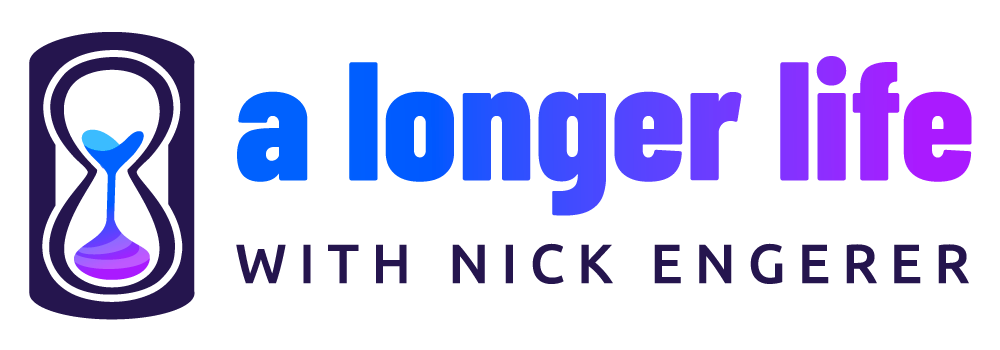
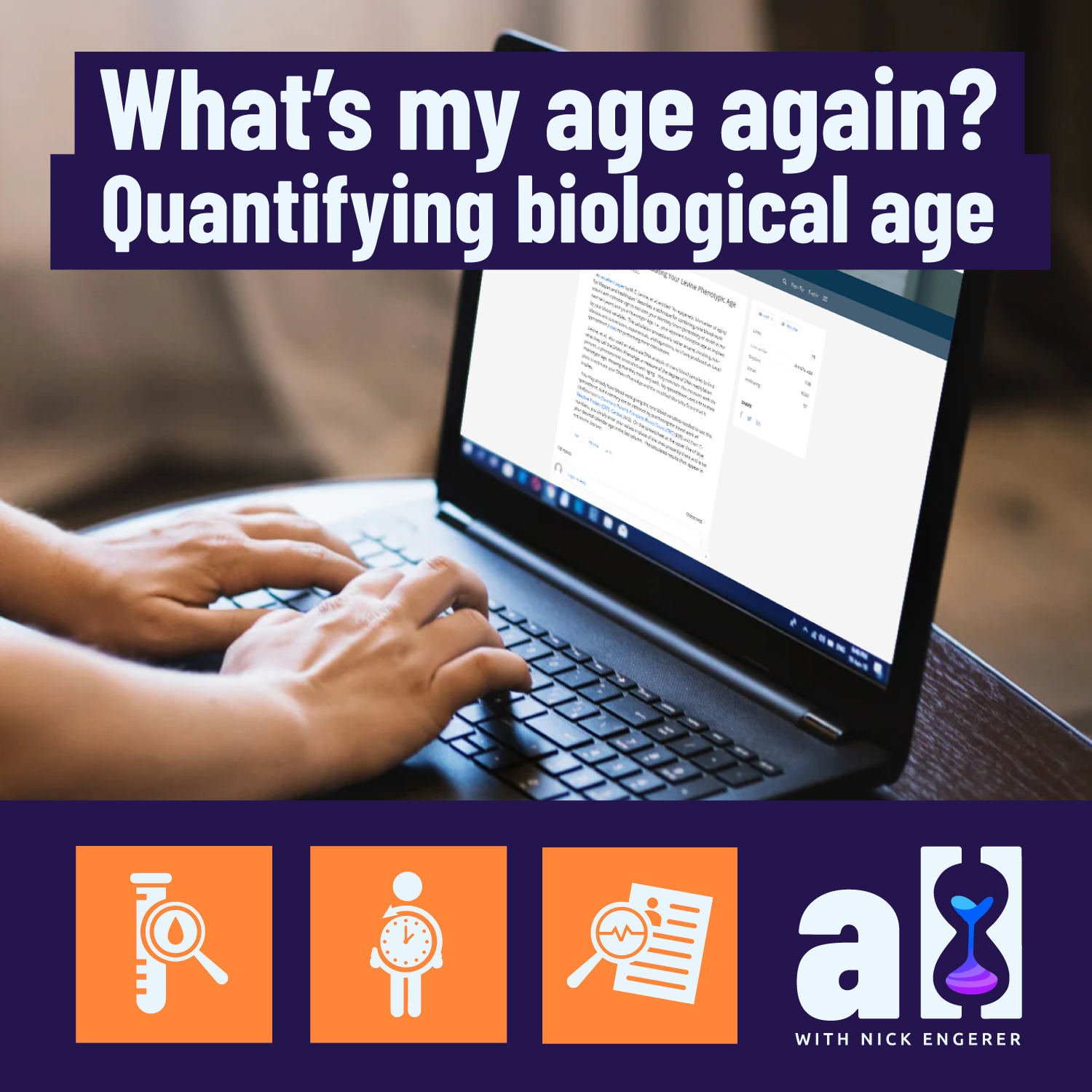



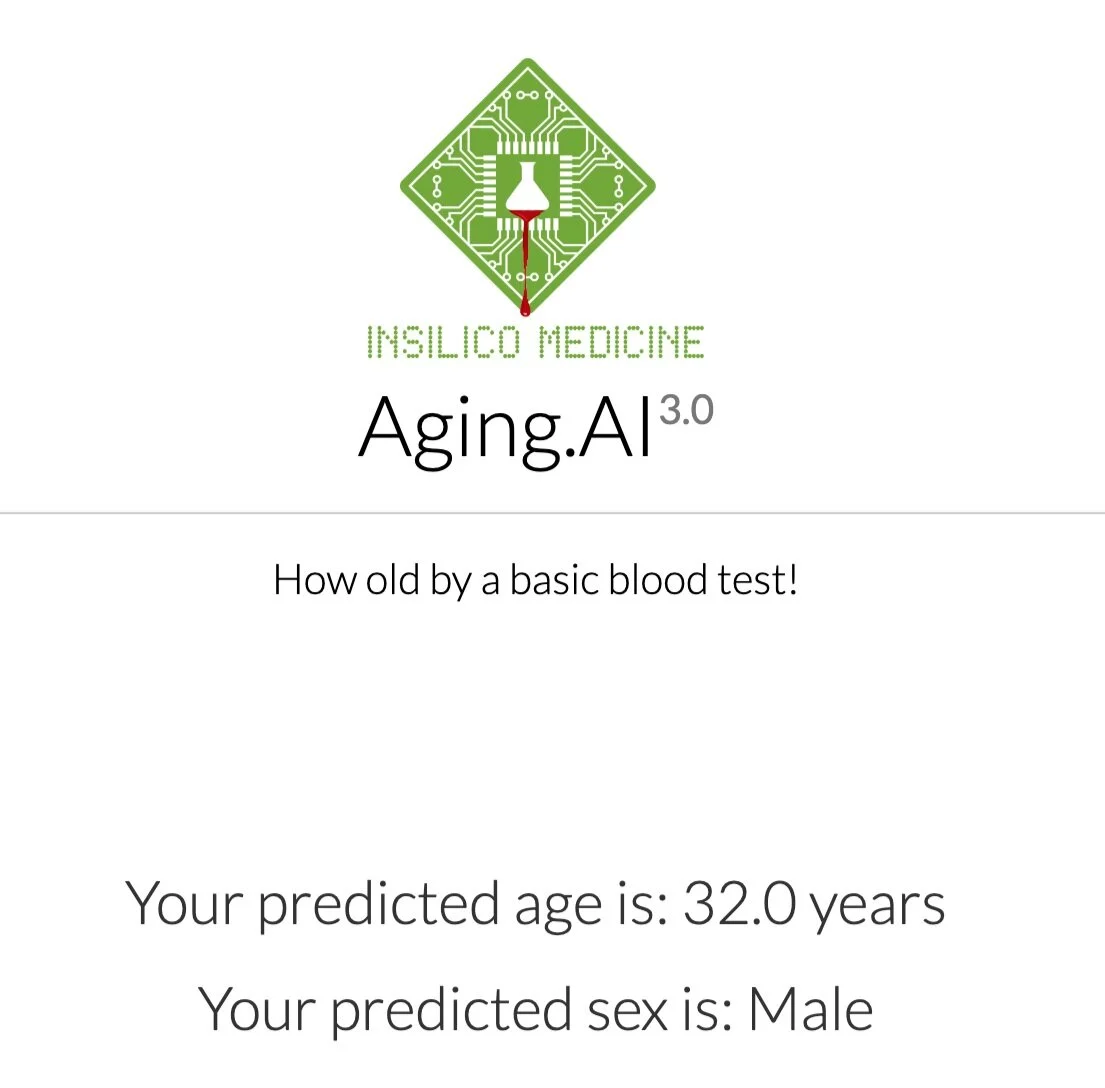


![Costing estimates produced with “Walk-in Labs” [1], [2], [3]. My total baseline test cost $999USD.](https://images.squarespace-cdn.com/content/v1/534cff75e4b0ce1c16de5321/1578708035056-NQBT0PVSD7FSR14BJDYH/Aging+Tests+Matrix+v1+January+2020)


